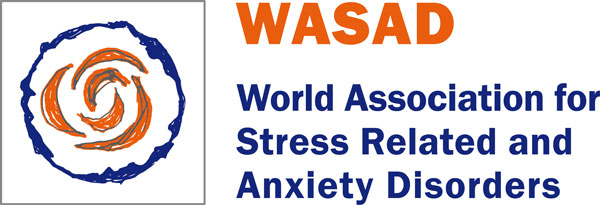For all interested onsite poster presenters (a presentation is not mandatory!), we offer the option to present their poster during postertours on Tuesday, September 12, and Wednesday, September 13
Each presentation should be up to 5 minutes (3 minutes for a short presentation and 2 minutes for Q&A)
Presented posters are grouped into 3 postertours
Postertour 1
Tuesday, September 12, from 12.00 – 12.55
Chair: Andreas Fallgatter, Germany
Topic: Anxiety, depression, stress and therapy
12.00 – 12.05 Submission ID: 12 Sex differences in cortisol secretion in depression: a systematic review and meta-analysis
12.05 – 12.10 Submission ID: 11 The impact of self-efficacy and stress on intention and implementation of a respiration focused training to help others during stress
12.10 – 12.15 Submission ID: 16 Neurexan Reduces Stress-Induced Hyperactivation in the Brain and Body – Results From a Placebo-Controlled, Crossover Trial in Mildly to Moderately Stressed, Healthy Individuals
12.15 – 12.20 Submission ID: 17 Long-Term Dysregulation in Stress Reactivity in Victims of Political Repression
12.20 – 12.25 Submission ID: 28 Physiological Stress Reactivity and Self-Harm: A Meta-Analysis
12.25 – 12.30 Submission ID: 2 Does Music Benefit Stress Recovery?
12.30 – 12.35 Submission ID: 76 Interactions of Perinatal Depression versus Anxiety: Infants’ Early Temperament Trajectories
12.35 – 12.40 Submission ID: 32 Effects of music listening on stress and skin barrier recovery: preliminary results
12.40 – 12.45 Submission ID: 21 TSST-Home – an experimental paradigm to induce psychosocial stress in the home setting
12.45 – 12.50 Submission ID: 66 The “sunshine” vitamin and anxiety symptoms: how does supplementation of vitamin D3 affect the anxiety levels among the students – results of an international survey
12.50 – 12.55 Submission ID: 68 How does religiosity affect the anxiety levels amongst the students – results of an international survey
Postertour 2
Tuesday, September 12, from 13.20 – 14.30
Chair: Birgit Kleim, Switzerland
Topic: Stress and translational research
13.20 – 13.25 Submission ID: 4 Elucidating the functional effects of omega-3 fatty acids as a treatment in ADHD against inflammation and oxidative stress
13.25 – 13.30 Submission ID: 30 Social fear affects limbic system neuronal activity and gene expression
13.30 – 13.35 Submission ID: 33 Lifelong effects of prenatal and early postnatal stress on the hippocampus, amygdala, and psychology of Holocaust survivors
13.35 – 13.40 Submission ID: 37 Impact of serotonin-transporter deficiency on peptidergic systems in the basolateral amygdala
13.40 – 13.45 Submission ID: 41 Extinction modulates cell type-specific intrinsic excitability and cannabinoid type 1 receptor-dependent plasticity at medial prefrontal cortex inputs in basal amygdala
13.45 – 13.50 Submission ID: 65 Positive and negative effects of social media use in adolescent girls
13.50 – 13.55 Submission ID: 60 Same or different? Effect of estradiol on stress reactivity in pre- and postmenopausal women
13.55 – 14.00 Submission ID: 53 Fronto-striatal dynamics and optogenetic approaches to remodel impulsive choice
14.00 – 14.05 Submission ID: 48 Negative emotionality in relation to epigenetics of estrogen signaling during puberty
14.05 – 14.10 Submission ID: 51 An Animal Model for Approach and Avoidance Behavior in Social Situations: Establishing A Combined Paradigm of Social Fear Conditioning and Social Buffering
14.10 – 14.15 Submission ID: 5 Involvement of the Wnt signalling in Methylphenidate (Ritalin) treatment of Attention-deficit hyperactivity disorder
14.15 – 14.20 Submission ID: 9 A Systematic Review on the Effects of Stress in the ADHD Brain
14.20 – 14.25 Submission ID: 19 Genetic and Epigenetic Effects associated with Hypnotherapy on Agoraphobic Patients
14.25 – 14.30 Submission ID: 49 Neural reactivity to valence of psychosocial feedback in early adolescents
Postertour 3
Wednesday, September 13, from 12.45 – 13.40
Chair: Christian Jacob, Germany
Topic: Stress over the life-span, focus children and adolescents, media
12.45 – 12.50 Submission ID: 6 Perceived Stress, Depressive Symptoms, and Objectively Measured Instagram and WhatsApp Use Over Time: A Cross-Lagged Panel Model Approach
12.50 – 12.55 Submission ID: 8 Investigating the trajectories of exposure to different forms of early life stress: Findings in young adults with previous youth residential care placements
12.55 – 13.00 Submission ID: 22 Therapeutic interventions targeting brain neuroinflammatory alterations associated with high trait anxiety
13.00 – 13.05 Submission ID: 18 Stress and Anxiety: The Physiotherapy Perspective
13.05 – 13.10 Submission ID: 26 Exploring the time trend of perceived stress during COVID-19: An Ecological Momentary Assessment study with the mHealth application Corona Health
13.10 – 13.15 Submission ID: 29 What are you looking at? Attentional bias and stress reactivity to NSSI-related online content in adolescents with and without non-suicidal self-injury
13.15 – 13.20 Submission ID: 52 Anxiety levels and structural brain connectivity in early pubertal transgender and cisgender youth
13.20 – 13.25 Submission ID: 54 Childhood Trauma Is Linked to Epigenetic Age Deceleration in Young Adults with Previous Youth Residential Care Placements
13.25 – 13.30 Submission ID: 62 The Association between Lifetime Stress Exposure and Social Trust Learning
13.30 – 13.35 Submission ID: 75 Outpatient Clinic 0-5: Early Childhood consultation in the Psychiatric University Hospital Zurich, Switzerland
13.35 – 13.40 Submission ID: 67 Associations between dosage, serum concentration and clinical outcome of SSRI fluoxetine in a transdiagnostic sample of youths: a therapeutic drug monitoring study
